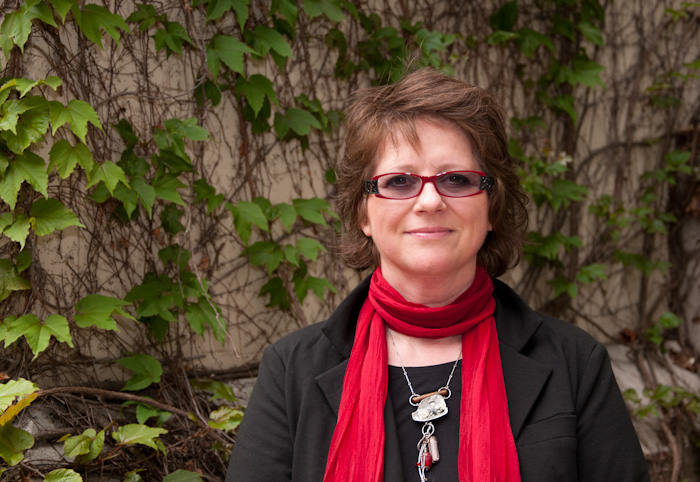Professor Sylvie Frigon: a research profile
Sylvie Frigon is a Canadian writer and Professor of Criminology at the University of Ottawa. On sabbatical in early 2018, she spent two months at the University of Victoria in Wellington as a visiting scholar in its Institute of Criminology.
Read more about her visit to Wellington.
 Her main research areas are women in prison, and issues such as employment, self-mutilation and conjugal homicide. “In the past ten years, my research has focused more on the role of the arts in prison, particularly dance, creative writing, literature and theatre.
Her main research areas are women in prison, and issues such as employment, self-mutilation and conjugal homicide. “In the past ten years, my research has focused more on the role of the arts in prison, particularly dance, creative writing, literature and theatre.
“For me, the arts can be used as a kaleidoscope to show the different angles, views and changes of the prison system.”
Since 2003, Sylvie has been teaching a class entitled “Gender, Confinement and Creativity”, which explores confinement in prisons and other institutions through the medium of the arts.
Three reasons motivate her to explore the role of the arts and creativity in prison:
- The arts give prisoners a voice to express their experience of life before, during and after incarceration
- They provide theoretical and practical ways to examine prisons and rehabilitation
- They offer innovative, different perspectives for criminology students.
Long record of achievements
Sylvie has a long record of achievements, publications and awards. However, she is particularly proud of the three novels she has written, and the response to them from the general public, women prisoners and their children.
Although Sylvie is bilingual (French and English), she writes in French because that is her first language.
In 2006, Écorchées (translation: Scorched) was published. She later adapted it into a play with a professional playwright, which was performed in prison by her criminology and theatre students.
She went on to write a children’s novel called Ariane et son secret (translation: Ariane and her secret) about a little girl's quest for her mother who is in prison. It was published in 2010. Its sequel novel, C’est où chez nous? (translation: Where is my home?) was a finalist in the Prix Espiègle 2017.
Dance
Sylvie’s interest in using the arts as a way to explore and illuminate what it’s like for women in prison was inspired by two experiences: writing her first novel and meeting Claire Jenny, choreographer and director of the Paris dance company Point Virgule, in 2004.
The two women worked together on a book about the experience of dance for women in prison. It was published in 2009.
Sylvie says there isn’t a lot of research on incarcerated women and yet they are a growing minority in our prisons. “We know that 80% of them have histories of abuse and more than 70% are mothers, most of whom have sole responsibility for their children.
“Reaching women through the arts is a positive way for them to discuss their painful issues.”
Professor Frigon’s research, articles and publications
 When Prison Blossoms into Art: Dance in Prison as an Embodied Critical, Creative and Performative Criminology, by Sylvie Frigon
When Prison Blossoms into Art: Dance in Prison as an Embodied Critical, Creative and Performative Criminology, by Sylvie Frigon Dance in Prison: Narratives of the Body, Performativity, Methodology and Criminology, by Sylive Frigon and Laura Shantz
Dance in Prison: Narratives of the Body, Performativity, Methodology and Criminology, by Sylive Frigon and Laura Shantz Performative Criminology and the “State of Play” for Theatre with Criminalized Women, by Elise Merrill and Sylvie Frigon
Performative Criminology and the “State of Play” for Theatre with Criminalized Women, by Elise Merrill and Sylvie Frigon  Professor Sylvie Frigon: list of publications
Professor Sylvie Frigon: list of publications
Explore our Arts in Corrections resources
- Arts in Corrections awards
- Art Inside podcast
- Arts in Corrections news/blogs
- Research
- Resources
- Arts in Corrections media


